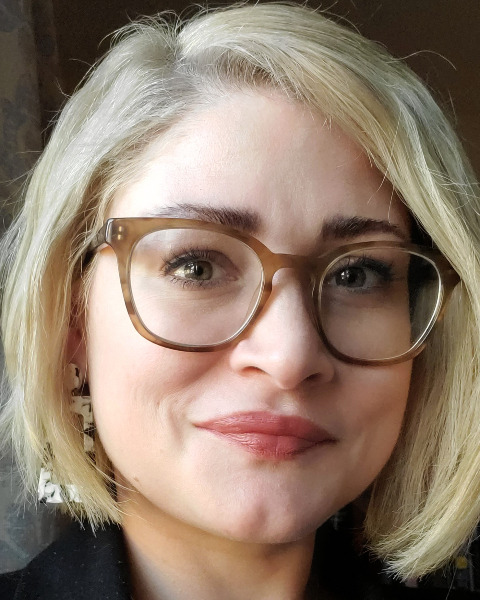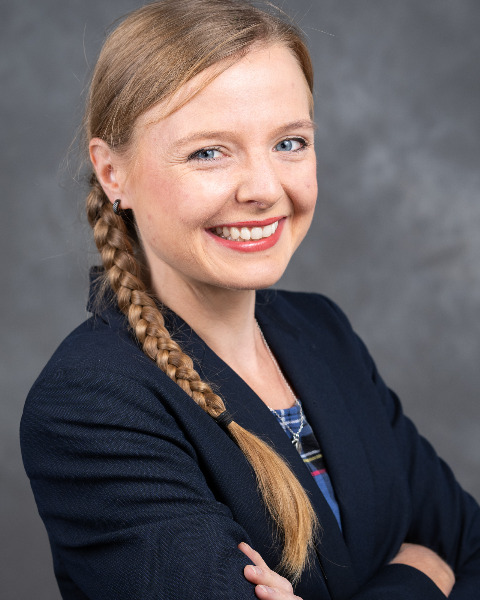Program Area: Health Sciences
Sensory Loss and Brain Health: Spotlighting Junior Investigators in the Sensory Health Interest Group
-

Jennifer Deal, PhD
Assitant Professor
Epidemiology
Johns Hopkins University
Baltimore, Maryland, United States -

Heather Whitson, MD,MHS
Professor
Medicine
Duke University
Durham, North Carolina, United States -
WB
Willa Brenowitz, PhD, MPH
Assistant Professor
Psychiatry and Behavioral Sciences
University of California San Francisco
San Francisco, California, United States -
SS
Srishti Shrestha, PhD
Assistant Professor
Neurology and The MIND Center
University of Mississippi Medical Center
Jackson, Mississippi, United States -

Natascha Merten, PhD, MS (she/her/hers)
Assistant Professor
Department of Medicine, Division of Geriatrics and Gerontology
School of Medicine and Public Health, University of Wisconsin-Madison
Madison, Wisconsin, United States -
KJ
Kening Jiang, MHS
PhD student
Epidemiology
Johns Hopkins Cochlear Center for Hearing and Public Health
Baltimore, Maryland, United States -
DP
Danielle Powell, AuD PhD
Post-Doctoral Fellow
Health Policy and Management
Johns Hopkins University
Baltimore, Maryland, United States
Chair(s)
Discussant(s)
Individual Symposium Abstract First Author(s)
Sensory loss (hearing, vision, touch, smell, taste) is common in older adults, with over 2/3 of adults over age 55 experiencing loss in multiple senses. Sensory loss has been consistently linked to dementia and cognitive decline in epidemiologic studies. However, research gaps exist, with some senses having been studied more widely than others. Given differing underlying anatomy and physiology of the senses, the nature of the pathways linking sensory loss to dementia may vary and some have yet to be elucidated. For some, it may be that they are both caused by a common underlying biology (e.g., neurodegeneration). Alternatively, potential causal mechanisms include increased cognitive load, changes brain structure/function, social isolation and/or reduced activity. Additionally, gaps exist in how sensory loss may impact the lived experience of people with dementia. This session will address these research gaps by highlighting the work of outstanding junior investigators in the GSA Sensory Health Interest Group. The association between touch and dementia will be reported, a relationship which hitherto has not been well described. We will present on the relationship between olfaction and white matter integrity in the brain and describe how sensory function predicts levels of Alzheimer’s disease biomarkers over 10 years. We will present evidence for associations between audiometric hearing, structural brain volumes, white matter integrity, and cognitive test performance on speech-in-noise processing and will conclude by describing how hearing loss may impact patient-provider communication among older adults with dementia.
Joint Collaborative Interest Group Symposium between Epidemiology of Aging and Sensory Health Interest Groups.
Learning Objectives:
- describe the current epidemiologic evidence for a relationship between sensory loss and dementia in older adults
- describe the association between sensory loss and biomarkers of neurodegeneration and Alzheimer’s disease
- describe how hearing loss may impact patient-provider communication among older adults with dementia
Presentations:
-
4:30 PM – 6:00 PM ETTouch Sensation is an Understudied Predictor of Dementia Risk in Older Adults
Individual Symposium Abstract First Author: Willa D. Brenowitz, PhD, MPH – University of California San Francisco
-
4:30 PM – 6:00 PM ETOlfactory Impairment and Microstructural Integrity of the Brain in the ARIC Study
Individual Symposium Abstract First Author: Srishti Shrestha, PhD – University of Mississippi Medical Center
-
4:30 PM – 6:00 PM ETTemporal Associations of Sensory Function and Blood-Based Neurodegenerative and Alzheimer's Disease Biomarkers
Individual Symposium Abstract First Author: Natascha Merten, PhD, MS (she/her/hers) – School of Medicine and Public Health, University of Wisconsin-Madison
-
4:30 PM – 6:00 PM ETAssociations of Audiometric Hearing, Brain MRI, and Cognitive Performance with Speech-in-Noise Performance
Individual Symposium Abstract First Author: Kening Jiang, MHS – Johns Hopkins Cochlear Center for Hearing and Public Health
-
4:30 PM – 6:00 PM ETDementia and Hearing Loss: A Double Hit on Patient-Provider Communication?
Individual Symposium Abstract First Author: Danielle Powell, AuD PhD – Johns Hopkins University
